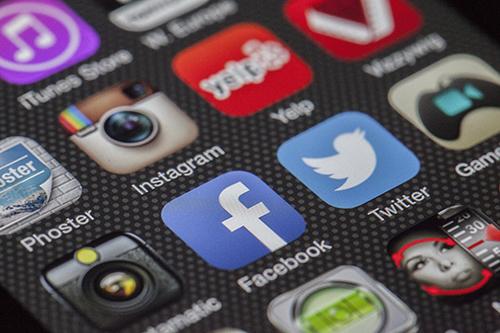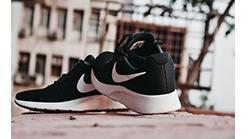Brands Taking Stands™ | What Is the Social Responsibility of Social Media?
Brands Taking Stands™ Newsletter | August 15, 2018
Brands Taking Stands™: What Is the Social Responsibility of Social Media?
Do digital companies have a duty to curate content that some find alarming? That’s the current dilemma of social media businesses Facebook, Twitter, YouTube, Instagram, and other platforms, which have self-defined as “agnostic” distributors—that is, neutral carriers not responsible for the content published through their channels and networks. These iconic brands, avatars for the enhanced exercise of freedom of speech on a scale previously unimaginable in the history of communications, now find themselves targets of increasing criticism for purveying content that is perceived as damaging, even dangerous, by their global community of users. What is the social responsibility of social media?
What’s at stake is the ongoing conflict between the First Amendment guarantee of freedom of speech, a right often under attack throughout its long history, and a contemporary culture that permits—even rewards—extreme commentary by measures of views and click-throughs, and amplifies it to an unprecedentedly large audience through the Internet.
Critics argue that like publishers, these “distributors” are responsible for the content they carry and present, if even they don’t create it. Companies argue that it is not their right to censor third-party content.
Of course, like all companies, these businesses have standards that can be referred to. And these “standards” are increasingly being belatedly invoked as the limits of free expression are being pushed past the breaking point, with growing negative pushback against tech companies that once seemingly could do no wrong in the eyes of their enthusiastic users.
Read More >
NEWS YOU CAN USE
Nike Becomes Latest Target for Employee Activism
In the latest example of a growing wave of employee activism, four former female employees have filed suit against Nike, claiming that the company violated equal-pay laws and allowed a corporate culture that was toxic to women employees. The action is the most recent fallout of a yearlong upheaval at the shoemaker. Last year, female employees at Nike circulated a self-initiated survey to review gender pay inequity and a lack of diversity in top management positions, as well as instances of “inappropriate workplace behavior.” This spring, that survey was brought to the attention of CEO Mark Parker, who dismissed 11 executives as a result. “When we discover issues, we take action,” said Parker. “We are laser-focused on making Nike a more inclusive culture and accelerating diverse representation within our leadership teams.”
Last month, Nike said it would give competitive pay-adjustments to 10%, or about 7,000 staff out of 74,000 employees around the world. Those changes include salary adjustments and a revision of bonus programs, pegging incentives in a bonus pool to company-wide performance. “Typically, rather than a huge overhaul, [companies] do things little by little, make a change here and see how it goes,” Lydia Frank, vice president of content strategy at PayScale, a compensation software company, told the Wall Street Journal. Nike veterans may remember the child labor and sweatshop scandals of the 1990s and 2000s that dented the company’s reputation—and sales. This time around, the company seems to be making major course corrections quickly to satisfy a workforce that is on red alert to call out underperformance in the critical areas of gender and diversity equality. It’s another reminder that brand reputations require constant vigilance, re: taking progressive positions on internal issues to keep up corporate standards.
Apparel Supply Chain Marks Major Workplace Safety Progress
The supply chain for the apparel industry has long been a byword for appalling workplace conditions. After the Rana Plaza disaster of 2013 when over one thousand workers were killed in a factory building collapse, the Alliance for Bangladesh Worker Safety responded with a five-year safety program. Now, the alliance of 28 large global retailers has announced that Bangladesh is “one of the safest places for ready-made garment workers in the world”, said Sean Cady, global supply chain vice-president at the North Carolina-based VF Corporation, an alliance member whose brands include The North Face, Timberland and Wrangler. He reported that Bangladesh’s apparel export trade has expanded, thanks to the transformation brought about by the Alliance and other campaigning bodies. Cady said: “Brand Bangladesh has a strong reputation.”
Ethics Should be Integrated into AI, Blockchain, and Big Data
“In many fields, ethics is an essential part of professional education. This isn’t true in computer science, data science, artificial intelligence, or any related field,” write data experts Mike Loukides, Hilary Mason and DJ Patil, in O’Reilly. “Students may study ethical principles, but they don’t learn how to implement those principles in their projects. As a result, they are ill-prepared for the challenges of the real world. They’re not trained to think about ethical issues and how they affect design choices.” The authors cite a White House report "Preparing for the Future of Artificial Intelligence" that highlights the need for more training in both ethics and security. They also propose a detailed checklist of guiding principles and an outline of how ethics can be built into a data-driven culture. The bottom line: companies and organizations need to do a better job integrating ethics into their culture and workflow. “Ethical thinking is important with or without corporate support, but it’s more likely to make a difference when ethical action is a corporate value.”
CR Leads from Aflac and Tupperware to Emcee at 3BL Forum
Catherine Hernandez-Blades, Senior Vice President; Chief Brand and Communications Officer, Aflac, and Mark Shamley, Vice President, Global Social Impact, Tupperware, lead corporate responsibility at two mission-driven Fortune 1000 brands. Join us at the Forum as Catherine and Mark guide us through the day, sharing their expertise and insights along the way.
C-SUITE COMMENTS
“Investors engaging in sustainable, responsible and impact investing... rely on information like a company's energy emissions, employee policies or executive pay structure to better evaluate the long-term health and future financial performance of their investments. Many are broadening their focus to include corporate governance, invoking investing's fundamental tenant — diversification — as one measure of a board's ability to minimize risk and maximize shareholder returns.
Research has shown that diverse teams are better at mitigating risk, find more innovative solutions and . . . deliver stronger financial performance. Having a diverse management team also will signal a genuine understanding and commitment to the investment principles guiding a growing number of young investors.”— Peter T. Grauer is chairman of Bloomberg LP and co-founder of the U.S. 30% club.
— Excerpted from Investment News
PEOPLE ON THE MOVE
Debra Perelman has been appointed the first female CEO and president of Revlon, the beauty company. She previously served as COO. Perelman started working at Revlon in 1998 and became a member of the Revlon board in 2015. She has also worked for Revlon as executive vice president and head of new business development for its holding company, MacAndrews & Forbes.
Brenda Tsai has joined BNY Mellon as chief marketing officer, a new post. Previously, she was senior VP & global head of strategic communications and marketing at financial data and software company FactSet. Tsai also led marketing teams at GE Capital, Procter & Gamble and Clorox and did a digital marketing stint at Booz Allen & Hamilton.
Salesforce named Brad Burns as EVP and chief communications officer. Burns had been SVP of corporate communications for AT&T Communications, a division of AT&T that includes business, mobility and entertainment, and technology and operations.
Want to receive this newsletter by email? Sign up here.
Continue the important conversations on corporate responsibility long after 3BL Forum with the Brands Taking Stands newsletter. Written by veteran journalist, John Howell, this newsletter is published every Wednesday morning.





